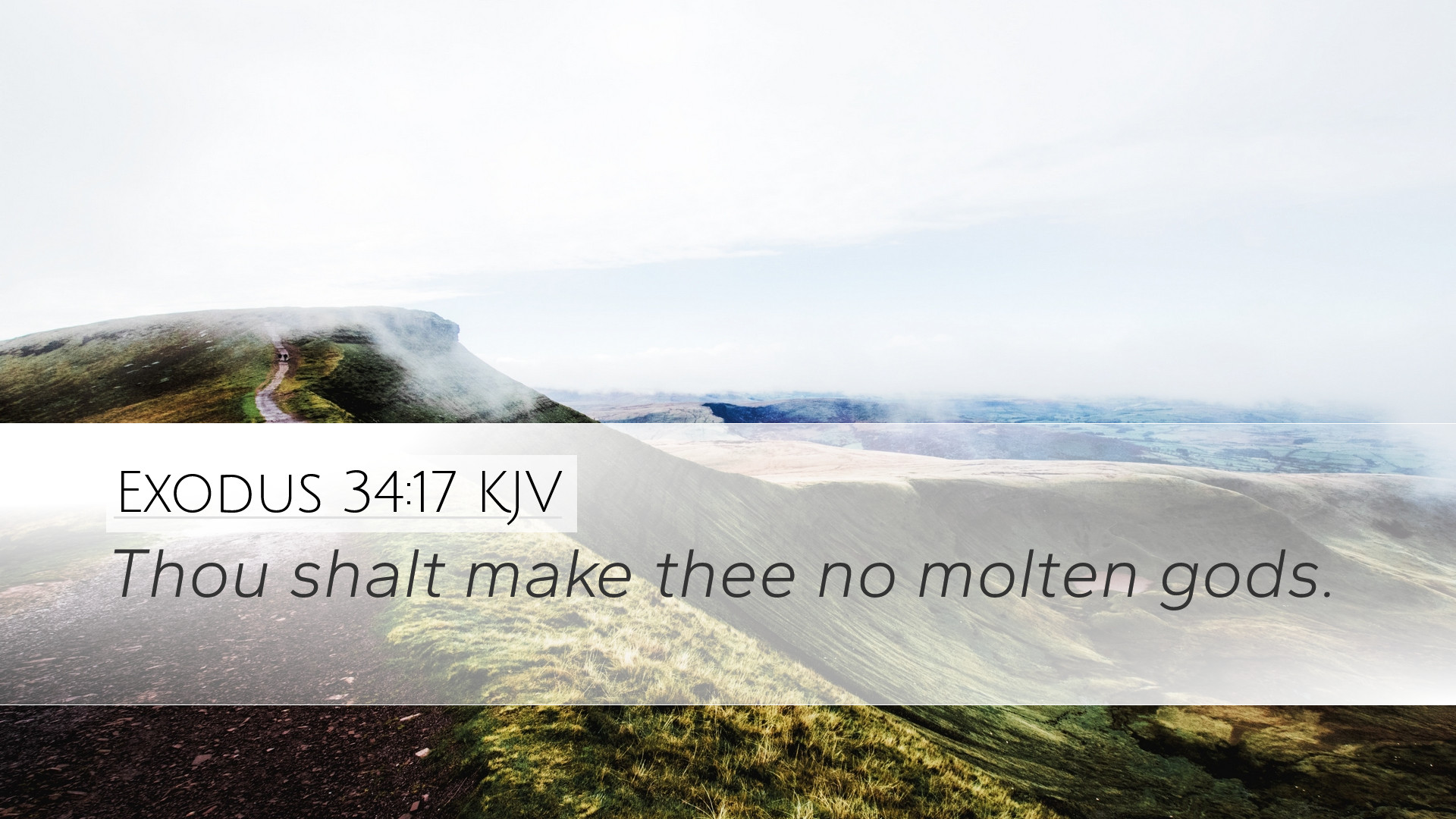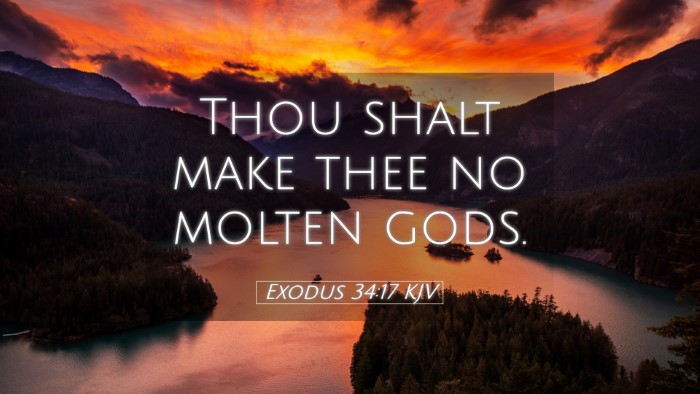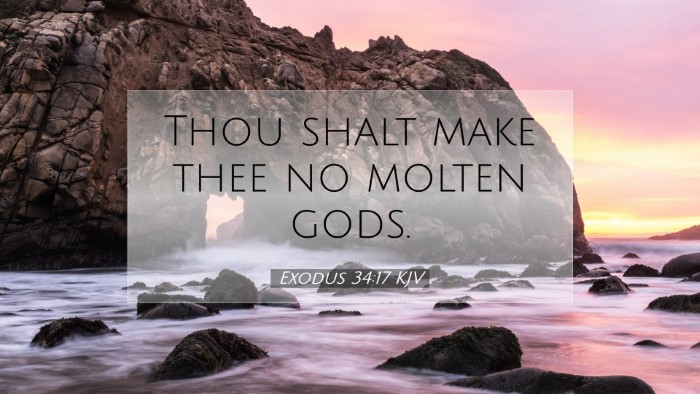Exodus 34:17 Commentary
Bible Verse Reference: Exodus 34:17 - "Thou shalt make thee no molten gods."
Introduction
Exodus 34:17 is part of the renewed covenant made by God with Israel after the incident of the Golden Calf. This verse is significant as it encapsulates God's prohibition against idolatry, a recurring theme throughout the Scriptures. In this commentary, we will explore various insights from esteemed public domain commentaries, highlighting the theological implications and the historical context of the passage.
Historical Context
This verse follows a pivotal moment in Israel's history, where the people had sinned against God by creating a golden calf idol. In this context, Moses ascends Mount Sinai to receive the renewed tablets of the Law. The instruction in Exodus 34:17 reflects God's deep concern for the purity of worship among His people.
Key Themes
- Prohibition of Idol Worship: The directive to avoid molten gods emphasizes God's desire for Israel to worship Him in spirit and truth.
- Monotheism: This command reinforces the principle that there is one true God, rejecting the polytheistic practices surrounding Israel.
- Idolatry's Consequences: The history of Israel's relationship with idols illustrates the dangers and moral implications of turning away from God.
Insights from Commentaries
Matthew Henry's Commentary
Matthew Henry emphasizes that the command against making molten gods serves as a significant warning against the sin of idolatry. He notes that this was not merely a prohibition but a reflection of God’s grace in guiding His people away from transgressions that lead to destruction. Henry elaborates that the molten gods symbolize anything that distracts from the true worship of Yahweh, thus illustrating the broader implications for believers today.
Albert Barnes' Notes on the Bible
Albert Barnes provides a detailed explanation of the historical context, interpreting the molten gods as tangible representations of the desires of the people. He highlights that this instruction is both a historical and moral mandate. Barnes argues that the presence of such idols would not only provoke God's anger but would also lead the nation into a cycle of sin that would result in divine judgment. His commentary invites readers to reflect on modern forms of idolatry, urging believers to examine what could inadvertently take precedence over God in their lives.
Adam Clarke's Commentary
Adam Clarke delves into the implications of this command in relation to ancient Israel's surroundings, where idolatry was prevalent. He states that the injunction against molten gods signifies not only a prohibition against physical idols but also serves as an admonition against spiritual unfaithfulness. Clarke posits that the heart of the command lies in maintaining exclusive loyalty to God, warning that any deviation could lead to the moral and spiritual decay of the nation. He articulates that the God of Israel desires a relationship grounded in love and fidelity rather than rituals performed through man-made images.
Theological Significance
Exodus 34:17 goes beyond a simple command; it encapsulates the essence of covenantal fidelity. The refusal to create molten gods emphasizes that worship must be rooted in a relationship with the living God rather than physical representations. This call to monotheism challenges believers to seek God genuinely and to abandon any modern equivalents of idolatry that might arise in their lives.
Applications for Today
- Self-examination: Pastors and theologians must encourage congregants to regularly evaluate what occupies their affections and priorities.
- Teaching Purity in Worship: It is crucial for those in ministry to cultivate a culture of authentic worship that aligns with biblical teachings.
- Awareness of Idols: Believers should be vigilant against both overt and subtle forms of idolatry that can emerge in contemporary society.
Conclusion
Exodus 34:17 serves as a timeless reminder of God's desire for His people to worship Him solely and sincerely. The insights from Matthew Henry, Albert Barnes, and Adam Clarke provide a rich tapestry of understanding that encourages deeper reflection on the nature of our worship and devotion. As we continue to walk in faith, may we heed the counsel of Scripture and ensure that our hearts are firmly anchored in the Lord alone.


